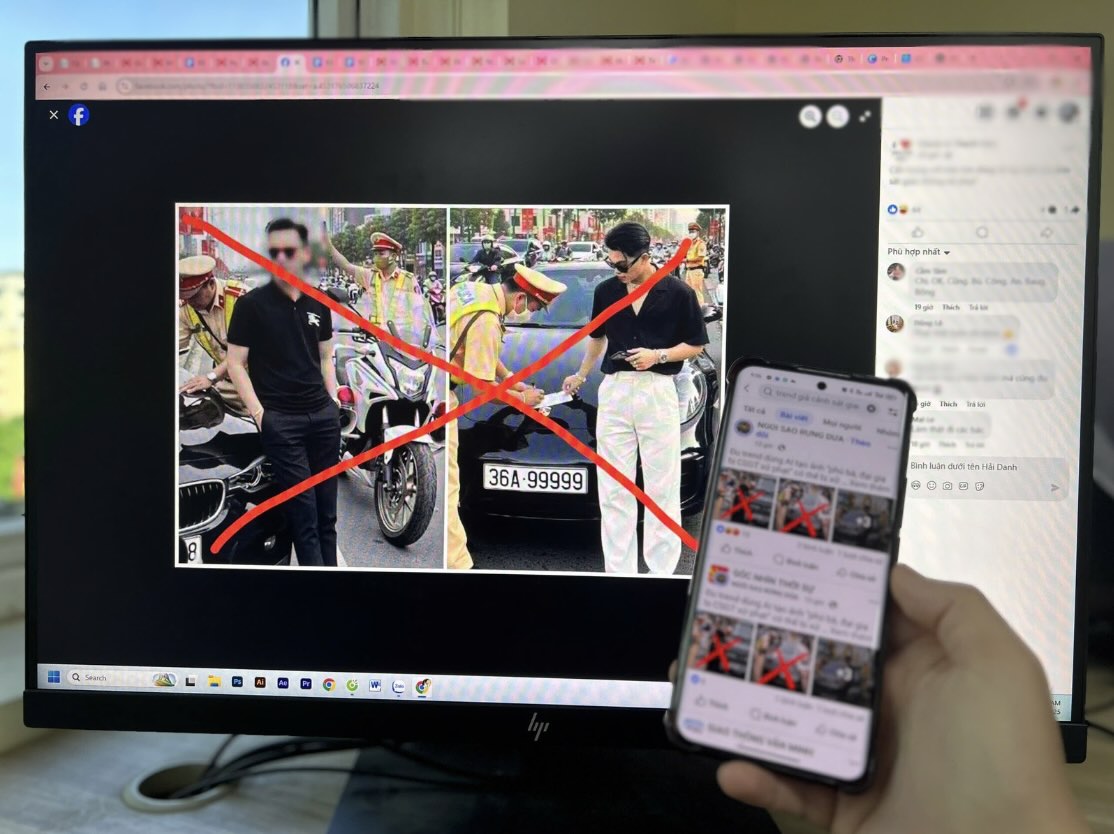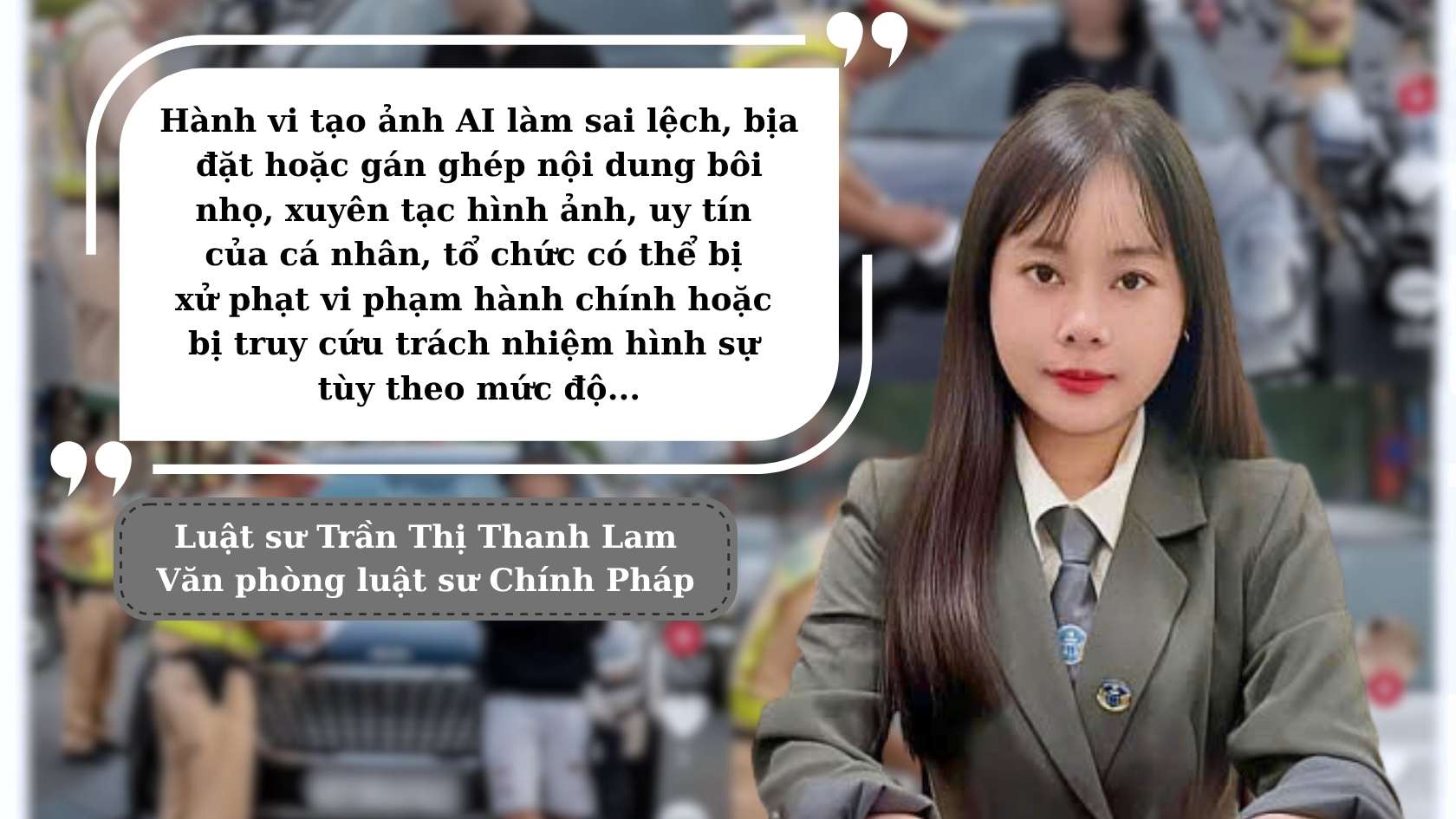
With just a few clicks, social media users can create real images thanks to AI tools. Because of that, more and more virtual life images created with AI are spreading on social networking platforms.
Notably, some people use this tool to catch the trend of photo collage and are fined by the Traffic Police (CSGT) right on the road. In the photo, the user appears in a trendy outfit, posing luxuriously next to the expensive supercar when the traffic police made a record. Every detail is so carefully staged that many people consider it a real photo taken on familiar streets.
Ms. Minh An (Cau Giay, Hanoi) shared: "I was shocked to see my child posting a photo being fined by the traffic police on Facebook. Because I was so worried, I immediately called my child to ask if something was wrong. When I knew it was just a collage, I breathed a sigh of relief and didn't forget to ask my child to delete the photo immediately because I thought it was a useless joke."
Some people in this trend said they just want to "test technology" or "create fun". However, photos incorporating police images into the fake setting can easily make viewers misunderstand the nature of the incident, affecting the reputation and image of the authorities.
A user named Minh Long shared: "At first, I just added it for fun because I saw many people posting too much, so I tried the trend. However, when I knew that providing false information was a violation of the law, I immediately deleted the photo and posted an apology."
Sharing with Lao Dong, Lawyer Tran Thi Thanh Lam - Chinh Phap Law Office - said: "In principle, if only created AI photos for fun, non-commercial purposes, without distorting, without incorporating false information, without insulting the honor and reputation of individuals or organizations, it will not be considered a violation of the law".

However, Ms. Lam also emphasized: If images are used to spread fabricated, distorted content, cause misunderstanding, insult or affect the honor and reputation of another agency, organization or individual, that behavior can be punished according to current regulations. In case of causing serious consequences, the violator may also be prosecuted.
According to Decree 15/2020/ND-CP (amended by Decree 14/2022/ND-CP), the act of sharing false information, fabricating, and insulting the honor of individuals and organizations on the internet can be subject to an administrative fine of up to 20 million VND. For more serious behavior, violators may be prosecuted for criminal liability according to the provisions of the Penal Code.
cyberspace is not an illegal place. In an era of strong technological development, using AI to create content needs to come with a sense of responsibility. Any act of distorting information, even for fun, can still have real legal consequences.










